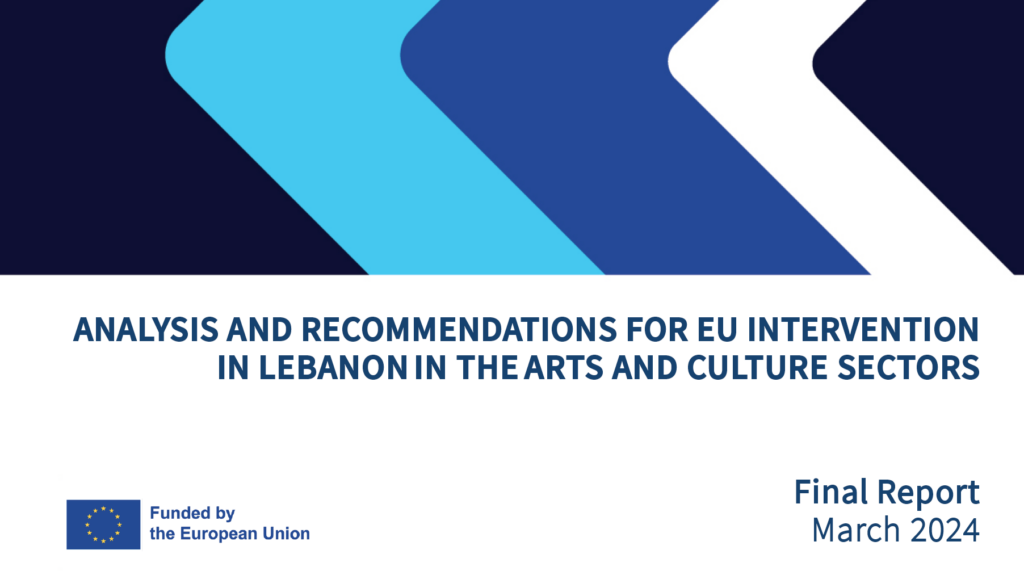Download our Report: Analysis and Recommendations for EU intervention in Lebanon in the Arts and Culture sectors

Lebanon’s socioeconomic and political crises have continuously deteriorated since 2019. In addition to the visible aftermath of the COVID-19 pandemic and the 4th of August Port Explosion, the ongoing political deadlock and currency devaluation have severely impacted the country’s cultural sector. Against this contemporary backdrop, it is important to note that Lebanon, despite being a relatively small country, has a complex history. The country has faced various challenges, including societal issues, political deadlocks, civil war, and economic crises. These factors have left a lasting impact on modern-day Lebanon, most notably in the form of political sectarianism that hinders social cohesion.
Some of the problematics which can be most immediately identified in the current context of Lebanon’s culture and creative sectors include:
1. Art exhibitions opening but rapidly closing due to lack of sustainability, as well as neglected heritage buildings left to decay;
2. The increasing exodus of artists and cultural actors due to significant loss of earnings for professionals;
3. The absence of a national plan to address these crises places excessive responsibility on NGOs and international actors.
Recognizing these issues and the need to support, strengthen, and enhance the sustainability of Lebanon’s culture and creative sectors, the EU Delegation to Lebanon requested the Cultural Relations Platform to provide an in-depth and up-to-date overview of the current status of all relevant sub-sectors. Also, an analysis of their characteristics, current weaknesses, and strengths to shed light on where the EU could provide the most efficient support – based on consultations conducted in the above-mentioned research areas. Ultimately, it provides insight into contemporary sensitivities and cultural trigger points. It will be useful for designing future projects that aim to engage a wide audience and promote social cohesion and inclusivity in Lebanon.